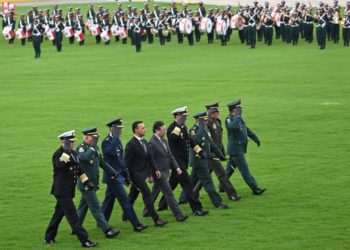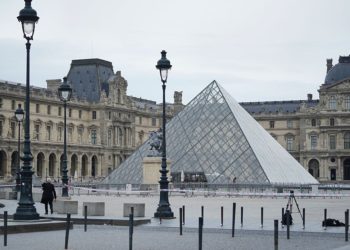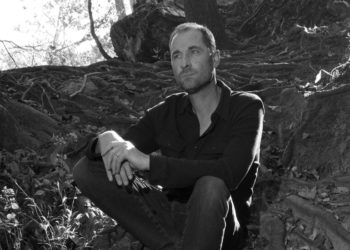House Foreign Affairs Committee Chairman Brian Mast recently proposed the Department of State Reorganization Act. Though the provision was dropped after it faced backlash, the bill initially would have given the State Department the power to seize passports of citizens for support of terrorist organizations—a phrasing that critics feared would allow the Trump Administration to punish Americans for expressing pro-Palestinian opinions and other speech that runs contrary to its goals.
The proposal was an eerie echo of a practice adopted in 1950, as McCarthyism took hold. It ended up ensnaring famed entertainer Paul Robeson, one of the most popular Black actors and singers of the 20 century and a leading figure in the civil rights movement. In August 1950, the State Department ordered Robeson to surrender his passport because of his outspoken criticism of Cold War policy and the Korean War. When Robeson refused, State Department officials took what had been the uncommon step of ordering the FBI to prevent him from leaving the country.
For the next eight years, federal officials prevented Robeson from traveling outside the U.S., which seriously harmed his career and created financial hardship. Robeson was only one of dozens of activists whose passports were seized during the era of McCarthyism. Despite the difficulties, Robeson never relented — he remained an outspoken peace and racial justice advocate, and he and his allies fought an ultimately successful legal campaign to win the right to travel. Robeson’s persistence against state harassment illustrated how resistance to civil liberties violations can protect and preserve basic citizenship rights, including the right to travel.
Robeson was born in 1898 in Princeton, N.J. In 1915, he matriculated to Rutgers University, where the future entertainer won acclaim as an All-American football player and gained a reputation for his deep singing and speaking voice. After graduation, Robeson turned to pro football and then law school. He used the money he made in the NFL to pay his tuition to Columbia Law School. Robeson tried a career in law, but after a racist slight from a white secretary, he gave up the practice. He also tried acting, performing in plays in New York and London. His breakthrough came when he was cast in Eugene O’Neill’s play The Emperor Jones in 1923, which, in the words of one biographer, “propelled him to stardom.”
Read More: The Media Spawned McCarthyism. Now History Is Repeating Itself
Robeson was always politically active and considerably far to the left. He was never a Communist Party (CPUSA) member, but he was a fellow traveler who worked closely with communists and their allies, especially on racial justice issues. In the 1930s and 1940s, the CPUSA was one of the most outspoken advocates for racial justice; it agitated for a federal anti-lynching law, integration, and the end of voting barriers like poll taxes. At the time, the party was fairly popular. It rejected treating economic inequality as a personal failure during the Great Depression — which resonated with Americans. Instead, the CPUSA blamed capitalism for the widespread unemployment and poverty. It was also outspoken against the rise of fascism in Europe and warned Americans about fascist practices like Jim Crow in the U.S.
By the late 1940s, however, the political tides turned against the CPUSA. In the growing Cold War environment, American politicians and businessmen worried that post-war instability could create new Communist states. They also worried about internal communist subversion.
Nonetheless, Robeson remained aligned with the CPUSA. He decried the growing tension between the Soviet Union and the U.S., warning that it would lead to endless war. In 1949, he told a peace conference in Paris that Black Americans had no interest in making war on anyone. The U.S. press misquoted him as saying Black Americans would not fight for the U.S., which led to his blacklisting and a House Un-American Affairs Committee hearing in which Black baseball star Jackie Robinson denounced his statements. Despite his public censure, and the harm to his career, Robeson’s political activism continued unabated.
In 1950, his fear proved prescient, when the U.S. became involved in the Korean conflict. Robeson condemned the U.S.’s entrance into the war. He used his platform to highlight the paradox between American officials arguing that U.S. troops were fighting to spread democracy abroad, while doing nothing about segregation at home. He argued that a country that did not extend democratic rights to all its citizens certainly couldn’t spread it abroad.
This advocacy created problems in an environment in which hunting out Communists had become increasingly important. While popular memory blames the era’s repressiveness on Wisconsin Senator Joseph McCarthy—hence the moniker McCarthyism—the truth is the push was far broader. An array of politicians in both parties, intelligence agencies, and civilian groups targeted radicals for their anti-Korean War activism, and their anti-racism. Robeson became the most visible target, as evidenced by his voluminous FBI file. The American Legion organized against Robeson’s political and entertainment appearances across the country. As a result, dozens of his public appearances were cancelled or had to move venues.
In 1950, Secretary of State Dean Acheson issued new regulations that prevented communists, and people suspected of being communists, from obtaining passports. Suspicion of communist sympathies was enough to justify passport seizure, which gave the State Department broad latitude, and the Korean War offered the pretext to argue it was a national security issue. In this charged environment, Robeson’s decades long sympathies toward the CPUSA proved problematic. Officials told the entertainer to surrender his passport in July 1950, a month after the war began. In September, Congress passed the Internal Security Act, which affirmed the State Department’s right to seize citizen’s passports.
Robeson and his allies resisted the government’s overreach. He obtained counsel, pushed for a meeting with Acheson, and met with State Department officials. This advocacy, however, proved futile.
Not having a passport meant that Robeson couldn’t travel abroad. But if anything, the restrictions only accelerated his activism. Meanwhile, the entertainer’s allies abroad rallied in support and contacted officials on his behalf. Returning Robeson’s passport became an international cause.
But officials ignored this pressure, and continued targeting leftist activists for similar suspensions. In February 1952, prominent civil rights activist W.E.B. Du Bois and his wife Shirley Graham Du Bois were denied passports to travel to Brazil for a peace conference. The Chief of the State Department Passport Division wrote that issuing a passport to the Du Bois couple would be “contrary to the best interests of the United States.” In May of that year, Canadian officials deported them at the behest of the State Department.
Read More: U.S. Suspends Visas for Palestinian Passport Holders: What to Know
That came only two months after Robeson, unable to travel, had asked author and journalist Lorraine Hansberry to give a speech in his stead at a peace conference in Montevideo, Uruguay. After her return, Hansberry’s passport was also seized. Later that year, Charlotta Bass, editor of the oldest Black newspaper in California, the California Eagle, joined the list of those ordered to surrender their passports. She refused and secured counsel. In 1953, Robeson’s wife Eslanda, an activist in her own right, was also denied a passport.
Even with the full might of the federal government arrayed against them, these activists continued to speak out against the Korean War, Cold War anti-communism, and for Black Freedom. In 1951, Robeson even started a newspaper called Freedom; Hansberry was a regular correspondent.
Two cases about the passport refusals eventually made their way to the Supreme Court. In both, the plaintiffs had refused to sign an affidavit affirming they were not CPUSA members. In 1958, in a 5 to 4 decision, the justices found that the State Department could not deny a citizen’s liberty to travel but could require passports. In other words, ideological tests for passports were illegal. Once his passport was returned, Robeson and his wife moved to London and did not return to the U.S. for five years.
Cold War anticommunism seems to have been very instructive for President Donald Trump and the GOP. Thus, it’s not surprising that Republicans are returning to the prospect of passport seizures. In an early win, civil liberties activists forced Mast to remove the provision from his draft legislation.
That tracks with Robeson’s experience, which suggests that, even if enacted, such a provision might not achieve its goal. Robeson and his allies redoubled their activism after the State Department restricted their right to travel. They also fought for years to affirm that this was a bedrock freedom that the government could not infringe. The episode indicates that today’s activists aren’t likely to bow to threats against their passports. If anything, they will fight to secure their freedom of speech and freedom of travel.
Denise Lynn is a professor of history and author of Women March for Peace: Black Radical Women’s Anti-Korean War Activism. Dr. Lynn is the Vice-President of the Historians of American Communism and the editor of its journal American Communist History.
Made by History takes readers beyond the headlines with articles written and edited by professional historians. Learn more about Made by History at TIME here. Opinions expressed do not necessarily reflect the views of TIME editors.
The post Taking Their Passports Away Only Makes Activists More Determined appeared first on TIME.




